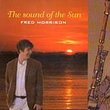| All Artists: Georges Bizet, Leonard Bernstein, Marilyn Horne, James McCracken, Tom Krause, Adriana Maliponte Title: Bizet: Carmen Members Wishing: 0 Total Copies: 0 Label: Deutsche Grammophon Release Date: 9/10/2002 Genre: Classical Style: Opera & Classical Vocal Number of Discs: 3 SwapaCD Credits: 3 UPC: 028947175025 |
Search - Georges Bizet, Leonard Bernstein, Marilyn Horne :: Bizet: Carmen
CD DetailsSimilar CDs
|
CD ReviewsI don't agree with any of these reviews Muslit | the world | 07/17/2007 (4 out of 5 stars) "I've played Carmen in the pit many more times than I wish to admit. In spite of the two leads (something I do agree with - not the best vehicles for either of them), this is the most riveting Carmen I've ever heard. The entire conception is different. Tempos are slow. Don Jose is the focus, not Carmen. The ultimate tragedy is what drives the production. Not the color, not the brilliance. Everything is toned down to that end. The Opera-Comique version adds to the realism. You basically have the original opera as Bizet intended it, plus music that does not exist in the more familiar recitative grand opera version (the recitatives are not Bizet's). I'm so tired of playing the 'usual' Carmen, which is played for color and brilliance, with the tragedy placed on the back burner, in addition to the usual generic stage direction given to the singers and chorus (horrible). This is a tremendously personal vision of Carmen. In spite of the two leads (which one can get used to), for me it is the version I keep coming back to." A one-off but disappointing overall Santa Fe Listener | Santa Fe, NM USA | 09/11/2005 (3 out of 5 stars) "Bernstein rarely conducted opera in the U.S. and having him in the pit at the Met was virtually unheard of. DG made a huge deal out of this recording, therefore, but to me Marilyn Horne is an overstated, leathery-voiced, and very unsexy Carmen. Beenstein pulled out all the stops to give us a larger-than-life performance but lost a lot of charm along the way. There's a lot more to say, but even at a bargain price I couldn't lsiten to this set with much pleasure. BTW I am otherwise a big Bernstein fan." A misguided enterprise pclaudel | New York City | 12/31/2008 (1 out of 5 stars) "However lamentable it may be, it is no secret that few opera aficionados give a damn about the conductor, especially outside the realm of Wagner's stage works (and to a lesser extent Mozart's). Yet this recording of Carmen has little to recommend it aside from the name of the conductor, Leonard Bernstein, and sad to say, his work here is largely self-indulgent. The underlinings, exaggerations, and overemphases in which he indulges (usually at the expense of the larger shape of a page or a whole scene), his neglect or ignorance of the work's authentic performing tradition, and his use of an edition (by Fritz Oeser) that places the burden of large tranches of spoken dialogue upon a cast that was clearly uncomfortable speaking French--these factors and several others contribute to an interpretation that may be stunning at first hearing but quickly becomes irritating.
This is a Carmen that was surrounded and driven by celebrity. It was based on a September 1972 staging of the opera that was to be directed by the Metropolitan Opera's then new general manager, Göran Gentele, whose regime this new production was meant to christen (Gentele, alas, was killed, along with two of his three daughters, in a horrid traffic accident in Sardinia in July 1972). One aspect of the production's guiding ethos--a turning of the back upon Rudolf Bing and upon the Bing decades at the company's helm--was the fact that its two leading singers (Horne and McCracken) had never sung their roles before. With the death of Gentele and the decision to place the staging in the hands of one of the Met's staff directors (a collection of nonentities that Eileen Farrell, using unrepeatable, un-PC language that would get her into very hot water today, derisively described as "skinny [boys] with clipboards"), was it then a coincidence that the bulk of critical attention was poised to devolve upon the superstar conductor, Leonard Bernstein, who had been engaged to direct the musical aspects of the production? Was it likely that the competition-averse Lennie--not yet the demigod he has since become and still a focus of contention in New York's musical life, in which he desperately wanted to retain an important place despite his departure from the Philharmonic a few years earlier--would fail to note these circumstances, especially in light of the fact that it was almost universally taken for granted by the opera fans of the day that the casting was a disaster in the making? Indeed, Bernstein's assent to conducting Carmen was contingent upon the agreement of a reluctant Deutsche Grammophon to record the production. (Those familiar with the Met of that period will recall that its chorus was habitually dreadful--the chorus that sings on the recording under review is largely made up of freelancers--and this factor was but one of several that lay behind DG's reluctance to invest a small fortune in what it correctly thought would be a white elephant.) As for the principals, the whole is less than the sum of the parts. Horne was then at or around the very peak of her career, and McCracken was similarly situated (although his renown was never as great as Horne's, he was a serious and frequently insightful artist). The performances they give suggest that they failed to understand the characters or else were badly directed. With his rugged voice and bold temperament, Tom Krause should have been an ideal Escamillo, yet this role turned out to be one of his few failures. Since he shortly afterwards sang Guglielmo splendidly in Solti's first recording of Così Fan Tutte, placing the blame on the direction (musical and dramatic) makes even more sense. Carmen's popularity, as enormous as it is justified, tends to make any recording of the opera the object of widespread acclaim, yet fans need to be aware that far better performances may easily be had. In particular, the many admirers of Horne, Krause, McCracken, and, yes, Bernstein should know that this recording is best forgotten. For notable performances by these esteemed artists, they had best look elsewhere. Bernstein's gifts suited him perfectly for the lyric theater, and we are all the poorer for his relative absence from it. Unfortunately, his character and temperament were largely at odds with his gifts, and the range of operatic repertory he chose to perform ended up being limited by both his musical prejudices and his patent requirement (once he was past his apprentice and journeyman days) that he be the uncontested center of attention in every project in which he took part." |





![Live on Earth [w/ Limited Edition Bonus DVD]](https://nationalbookswap.com/cd//m/68/8368/638368.jpg)